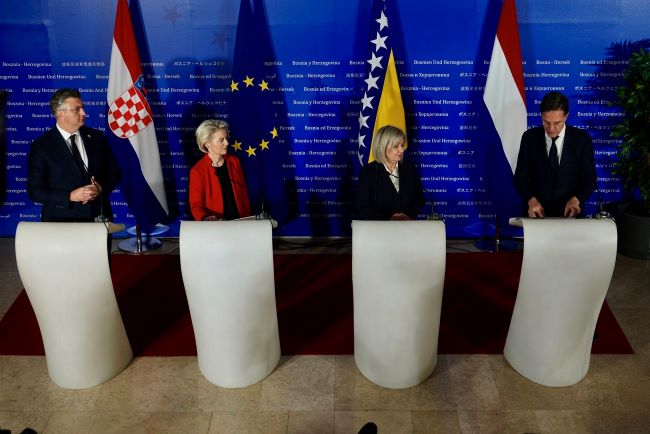Bosnia received some pressure from European and national politicians to move on with reforms deemed necessary to start accession negotiations with the European Union before the European parliament takes on a vote on the topic in June.
European Commission president Ursula von der Leyen, Dutch outgoing Prime Minister Mark Rutte and Croatian Prime Minister Andrej Plenkovic were in Sarajevo during the week and spoke at a news conference on accession and what the Balkan nation needs to do to receive a positive recommendation by the Commission in March.
Von der Leyen said that “we have seen some progress, we have seen a real commitment to the accession goal with important laws adopted,” while Rutte reminded that “EU accession has to be and always will be a merit-based process” and that he expects to wait and see what happens in the next weeks.
Plenkovic urged the neighbouring country to seize the opportunity and warned against missing on the Commission’s recommendation: “if we miss March, the whole year will be lost.”
Bosnia received candidate status in 2022. Last year, the European Council said that accession talks may start after compliance to reach certain milestones. Accession talks with Bosnia and six other countries in the Western Balkan region re-gained steam after some years of stall due to the Russian invasion of Ukraine. According to some Western officials, Russia has been trying to destabilise the Western Balkan region, particularly in Bosnia, where pro-Russian Bosnian Serb leader Milorad Dodik threatened secession of the Serbian part of the country.
Bosnia will have to make some concrete steps against corruption and money laundering, plus some judicial reforms and work on rule of law, in order to receive EU’s approval for continuing accession talks. EU officials promised 6 billion euro in aid to help perspective countries with the reforms. Bosnia is poised to receive 1 billion euro in funds after passing some economic reforms.

